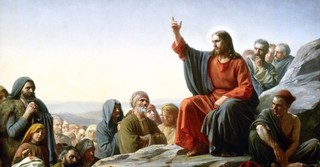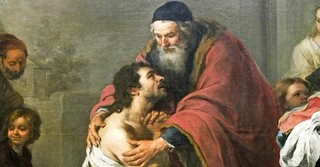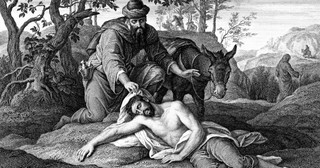Jacob and Esau - Bible Story
Share

Bible Story of Jacob and Esau
Jacob and Esau were twin brothers born to Isaac and Rebekah. The Bible tells us that they struggled together in Rebekah's womb, a foreshadowing of their troubled relationship. Esau was born first and thereby became legal heir to the family birthright which included, among other things, being heir to the Covenant between God and Abraham. This birthright was a link in the line of descent through which the Promised Messiah was to come (Numbers 24:17-19).
In contrast with Esau who was a skillful hunter and his father's favorite, Jacob was a plain man, dwelling in tents (Genesis 25:27), and his mother's favorite. The Hebrew word for plain is the same word translated in other Scripture as perfect, upright, undefiled. So the word plain refers to Jacob's character as a man of God. God records His highest praise and blessing for Jacob: The LORD hath chosen Jacob unto Himself (Psalm 135:4).
Esau came from the field, and he was faint: And Esau said to Jacob, Feed me . . . with that same red pottage (stew); for I am faint (Genesis 25:29-30). Knowing the character of his brother, Jacob replied: Sell me this day thy birthright (25:31). Esau had no interest in spiritual things so he agreed, saying: I am at the point (about) to die: and what profit shall this birthright do to me? (25:32-34). Esau could not have been at the point to die by missing one meal but he revealed how worthless he considered the birthright.
When Issac was close to death it became time to give Esau his blessings. Issac asked Esau to go hunt for a special meal after which he would pass the blessing. Rebekah overhead and helped Jacob disguise himself as Esau and bring Issac the meal instead while his brother was still hunting. Because Issac had poor sight he was tricked into giving the blessing to Jacob. Esau was enraged and Jacob had to run away to save his life.
The writer of Hebrews referred to Esau as a profane (godless) person (Hebrews 12:16). Before their births, God knew that Esau's descendants would become enemies of Israel for generations to come and He knew Jacob was a man of integrity. He had preordained that Jacob would be in the lineage of Jesus. Read the Biblical account of these two important Old Testament brothers in the Scripture below, followed by helpful commentary and video, audio Bible studies.
Lesson from Jacob and Esau
In the New Testament, Esau’s decision to sell his birthright is utilized as an illustration of ungodliness—a “godless” person who will put worldly attractions over spiritual blessings (Hebrews 12:15-17). By his instructive example, Esau warns us to hold firm to what is truly valuable, even if it means rebuking the desires of the flesh. The Bible uses the account of Jacob and Esau to represent God’s calling and election. God chose the younger Jacob to carry on the Abrahamic Covenant, while Esau was providentially excluded from the Messianic lineage (Romans 9:11-14).
Why Is There So Much Hope in the Story of Jacob and Esau?
As famous siblings go in the Bible, Jacob and Esau rate up there with Cain and Abel. While their competition with each other is legendary, the fact that they forgave and reconciled is an equally powerful story.
Who Were Jacob and Esau in the Bible?
Jacob and Esau were the sons of Isaac and Rebekah, and the grandsons of Abraham and Sarah. Abraham, a descendent of Noah, had been told by God to leave his family and move to Canaan, as well as that his family line would be blessed (Genesis 12:1-4). Isaac was born when Abraham was over 100 years old, and Isaac married his wife Rebekah when he was 40 years old (Genesis 25:20). Like Abraham, Isaac lived in tents—a nomadic herder who moved around to wherever fields were available.
Like his parents—Sarah couldn’t have children and laughed when God announced she would finally have one—Isaac and his wife initially struggled to have children. After various prayers, Rebekah gave birth to twins (Genesis 25:21).
Even before Jacob and Esau got out of the womb, it was clear that there would be problems. Rebekah felt the babies “jostling each other within her” (Genesis 25:22) and when she asked God was what happening, his answer was that her sons would be the founders of two separate nations (Genesis 25:23). Not only that, but one of the sons would be stronger, and while one would be older, he would serve the younger one (Genesis 25:23).
This competition continued even when Jacob and Esau were coming out of the womb: Esau came out first, but Jacob came out a moment later, grabbing his brother’s heel (Genesis 25:24). It was also clear from the moment of birth that the boys would look very different. Esau was “red, and his whole body was like a hairy garment” (Genesis 25:24) and grew up to be an outdoorsman. Jacob was more interested in staying at home and developed into a clever, conniving man.
What Happened between Jacob and Esau before Jacob Ran Away?
As it’s clear above, Jacob and Esau were set up from before birth to be two very different men, which would create problems if they weren’t careful. The fact that their parents picked favorites—Isaac preferred Esau, Rebekah preferred Jacob (Genesis 25:28)—made things more complicated.
Jacob also showed that he wasn’t above taking advantage of situations to get ahead of his brother: one day, Esau came home hungry from hunting and asked Jacob for some stew he was cooking. Jacob made Esau swear to give up his birthright (the firstborn son’s share of the estate), and then gave him the stew (Genesis 25:27-34).
However, the trouble between Jacob and Esau really came to a head when Isaac became old enough that his eyesight was gone, and he wasn’t sure how much time he had left. At that point, he asked Esau to make him a wild game meal, and then he would give Esau his blessing (Genesis 27:1-4). This blessing was separate from Esau’s birthright and had more long-lasting implications. It was about which of the two sons would inherit Abraham’s mantle, continuing the covenant that God had made promising Abraham many descendants and other blessings (Genesis 17).
Urged on by Rebekah, Jacob put on a disguise that made his skin feel hairy like Esau’s and went to Isaac posing as his brother. Isaac was initially confused since this man talked like Jacob (Genesis 27:21-23) but decided to believe the evidence of his hands. He then blessed Jacob, a blessing that promised a number of things: Abundant food from the land (Genesis 27:28), dominance over other people (Genesis 27:29a), dominance over his brothers and deference from his mother’s family (Genesis 27:29b), that whoever cursed him would be cursed, that whoever blessed him would be blessed (Genesis 27:29c).
Esau came shortly afterward, and it quickly became clear what Jacob had done. Isaac told him that he could not bless him, and when Esau demanded something and wept, Isaac said the following:
“Your dwelling will be away from the earth’s richness, away from the dew of heaven above. You will live the sword and you will serve your brother. But then you will grow restless, you will throw his yoke off your neck”Genesis 27:39-40.
Whether this was meant as a rebuke to Esau or a prophecy of what would logically follow since Jacob had gotten the blessing, is hard to say. Either way, Esau stayed angry and plotted to kill Jacob sometime after their father had passed away (Genesis 27:41). Fortunately for Jacob, Rebekah learned about his plans and convinced Isaac to send Jacob away on the pretense of finding a wife among her people.
During the next few years, Jacob had a wide variety of strange experiences. Early on, he had visions in his sleep, of a ladder leading to heaven (Genesis 28:10-22). When he reached his mother’s country he met his uncle Laban and worked for Laban for seven years to marry Laban’s daughter Rachel. Due to some trickery on Laban’s part, Jacob married Rachel’s sister Leah first and had to work another seven years to get Rachel (Genesis 29:15-30). After Rachel had her first son, Joseph, Jacob planned to return home, but Laban convinced him to stick around longer. Jacob finally left when it became clear Laban’s sons resented him (Genesis 31:1-2). Taking the herds and servants he had acquired, his two wives, and the 11 sons he had between those wives, Jacob traveled back home to face Esau.
What Happened between Them When Jacob Returned?
After leaving Laban, Jacob sent messengers to Edom, where Esau had settled. His messengers came back with the news that Esau was coming to meet Jacob…and bringing 400 men with him. Worried this was an army coming to kill him, Jacob sent out a gift of livestock to Esau and cautiously began moving toward a place where they could meet.
After his party had crossed the Jabbok River, Jacob sent his family and possessions ahead and spent a night alone. A man appeared, they wrestled, and Jacob refused to let go until after the man had blessed him. The man replied that Jacob was wrestling with God himself (Genesis 32:24-32).
The next day, Jacob returned to his party, and say Esau arriving. He then moved Leah and her children to the front of his group, Rachel and Joseph to the back, and approached Esau in a humble pose (Genesis 33:1-3). Jacob approach bowing and moving slowly, but Esau ran to him and embraced him. They wept, and Esau asked about the animals Jacob had sent, protesting that he didn’t need a gift (33:4-9). On Jacob’s insistence, he took the gift and returned home (Genesis 33:10-12). Jacob traveled further into Canaan and bought some land that he settled on, naming it Elohe Israel (33:18-20).
Why Is There So Much Hope in Their Story?
There are many things we could take from the story of Jacob and Esau, but maybe the most important one is how hopeful their story is. Jacob and Esau literally were fighting each other from before they could remember. One of them cheated the other in a massive way, and it looked for a while as if revenge was going to settle their rivalry permanently. Instead, Esau forgave Jacob and they reconnected.
Contrary to how it’s often explained, forgiveness doesn’t act like wrong things didn’t happen. Depending on our situation, it may not always be possible to make restitution (which may be what Jacob was aiming for with his gift of livestock). However, this does not mean we should not repent of our wrongdoing, forgive our wrongdoers, and work toward reconciling. We may find that just when it looked like someone couldn’t care less about forgiving us, they are actually prepared to reach out and give grace.
Photo credit: ©GettyImages/hjalmeida

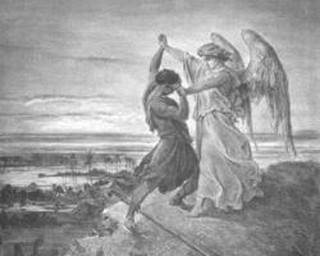

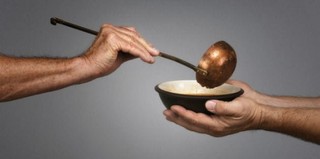
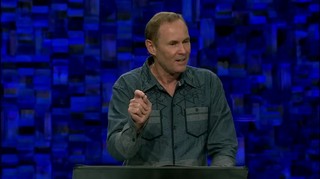
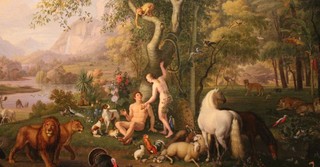

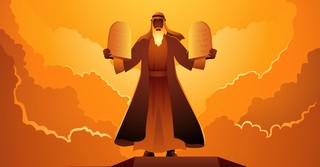
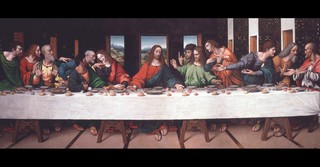

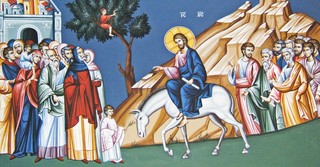
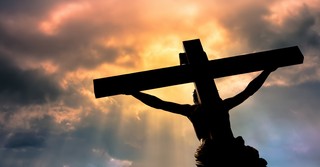
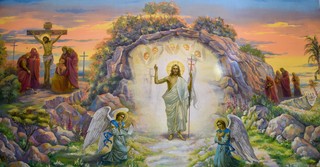
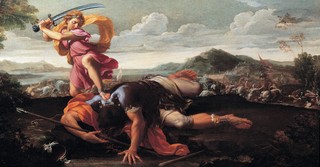
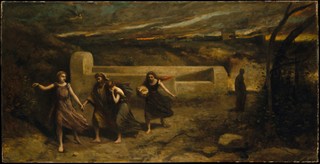
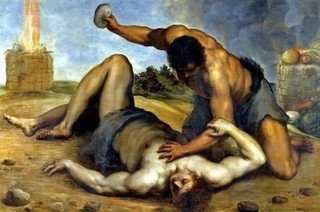
.800w.tn.jpg)
